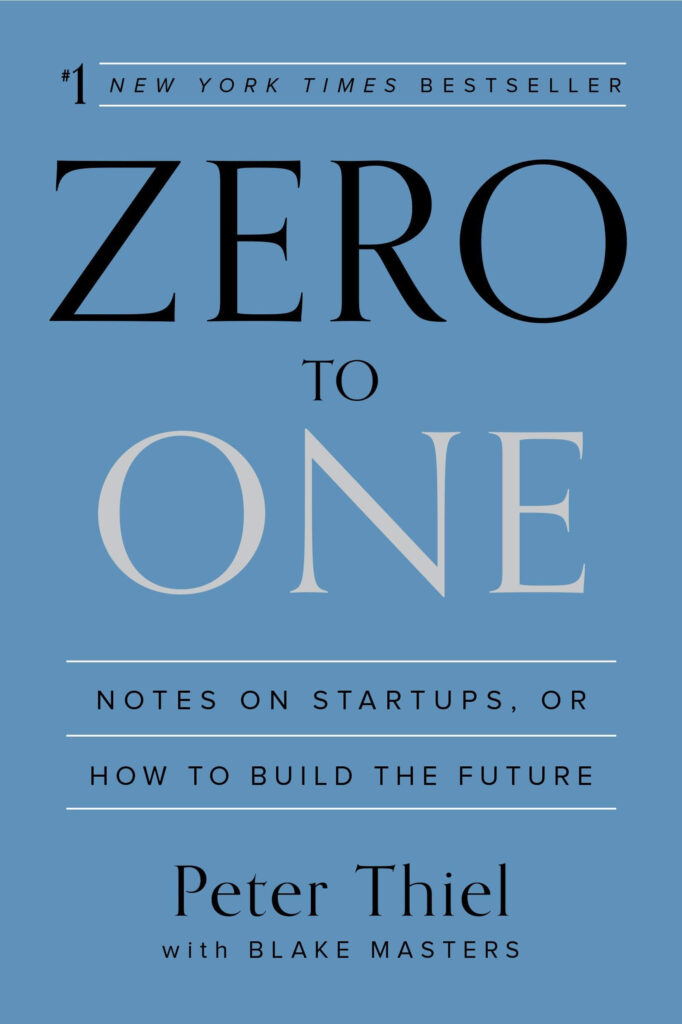Zero to One: Notes on Startups, or How to Build the Future
Peter Thiel, Blake Masters

If you want to build a better future, you must believe in secrets.
The great secret of our time is that there are still uncharted frontiers to explore and new inventions to create. In Zero to One, legendary entrepreneur and investor Peter Thiel shows how we can find singular ways to create those new things.
Thiel begins with the contrarian premise that we live in an age of technological stagnation, even if we’re too distracted by shiny mobile devices to notice. Information technology has improved rapidly, but there is no reason why progress should be limited to computers or Silicon Valley. Progress can be achieved in any industry or area of business. It comes from the most important skill that every leader must master: learning to think for yourself.
Doing what someone else already knows how to do takes the world from 1 to n, adding more of something familiar. But when you do something new, you go from 0 to 1. The next Bill Gates will not build an operating system. The next Larry Page or Sergey Brin won’t make a search engine. Tomorrow’s champions will not win by competing ruthlessly in today’s marketplace. They will escape competition altogether, because their businesses will be unique.
Zero to One presents at once an optimistic view of the future of progress in America and a new way of thinking about innovation: it starts by learning to ask the questions that lead you to find value in unexpected places.
Key Summary
“Zero to One” is a book written by Peter Thiel, co-founder of PayPal and Palantir, that explores the importance of creating new and innovative businesses. The book argues that the future belongs to companies that create something truly new and valuable, rather than simply copying and improving upon existing ideas. Thiel emphasizes the need for entrepreneurs to think big and aim for “zero to one” growth, as opposed to “one to n” growth.
Takeaways
1. Entrepreneurs should aim for “zero to one” growth, creating something entirely new, rather than copying existing ideas.
2. Create a unique value proposition and focus on monopolizing your niche.
3. Look for untapped markets with large potential.
4. Build a team with complementary skills and a shared mission.
5. Have a long-term vision and don’t be afraid to take risks.
6. Seek out mentors and advisors with relevant experience.
7. Build a scalable and defensible business model.
8. Stay focused on creating value for your customers.
9. Have a plan for marketing and distribution.
10. Continuously test and iterate to validate assumptions and improve your product.